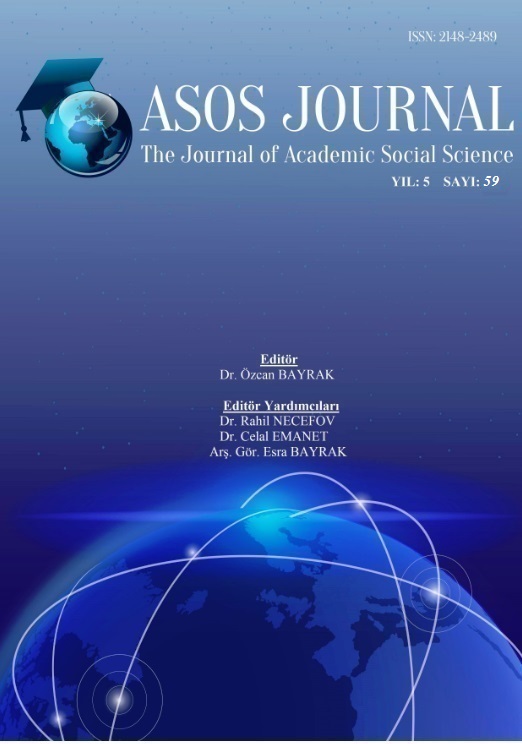Author :
Abstract
Kımız, kısrak sütünden elde edilen ve genellikle Orta Asya’da tüketilen fermente bir süt ürünüdür. Kısrak sütünün yağ oranı az, laktoz oranı ise yüksektir. Kımız için sağılacak kısrakların taşıma işlerinde kullanılmaması, bozkırlarda, yaylalarda ve açık havada yetiştirilmiş olması gerekmektedir. Kımızın, atalarımızın tükettiği, probiyotik özelliği kanıtlanmış bir süt ürünü olmasına rağmen Türkiye’de üretimi ve tüketimi yaygın değildir. Bu nedenle ata içeceğimiz ile ilgili özelliklerin araştırılması, gerekli literatürün toplanması ve derlenmesi, gastronomi bilimi açısından bir indeks çalışmasının yapılması önem kazanmaktadır. İndeksin oluşturulması için literatür taranmıştır. Çalışmanın sonucunda kımızın hem kültürel hem de bilimsel değerlere sahip olduğu, kımızın pek çok hastalıkların tedavisinde kullanıldığı ve kımız hakkında yapılan yabancı kaynakların yerli kaynaklara göre daha fazla olduğu anlaşılmıştır. Ayrıca, Türkiye’de kımız üretimi ve satımı yapılabilmesi için bir takım çalışmaların yapılması; bunun için devletin, işletmecilerin, medyanın ve araştırmacıların sorumluluklarını yerine getirmeleri gerektiği anlaşılmıştır.
Keywords
Abstract
Koumiss is a fermented dairy product obtained from milk of mare and consumed mostly in Central Asia. The fat content of milk of mare is low and the lactose ratio is high. The mares to be harvested for koumiss should not be used for transport, but must be grown in steppes, highlands and open air. Although koumiss is a dairy product that has been consumed by our ancestors and has proven probiotic properties, production and consumption in Turkey is not common. For this reason, it is important to investigate the characteristics of ancestors, to collect and compile the necessary literature and to conduct an index study in terms of gastronomy knowledge.The literature has been searched for the creation of the index. As a result of the study, it is understood that koumiss has both cultural and scientific values, koumiss is used in the treatment of many diseases and the foreign sources about koumiss are more than the domestic sources. Furthermore, it has been understood that some work must be done in order to be able to produce and sell koumiss in Turkey, that it should fulfill the responsibilities of the government, operators, media and researchers.





